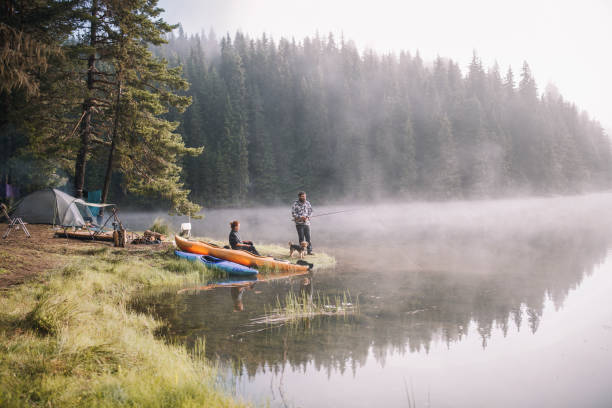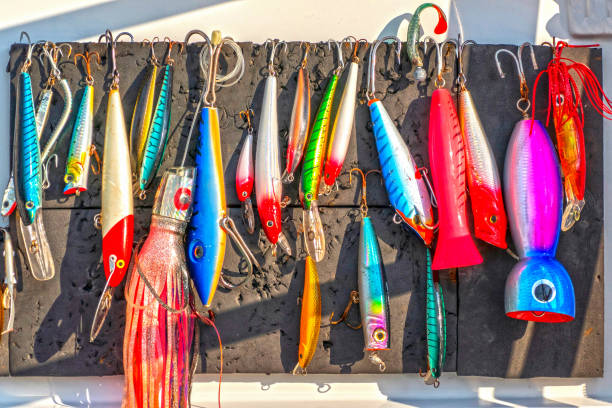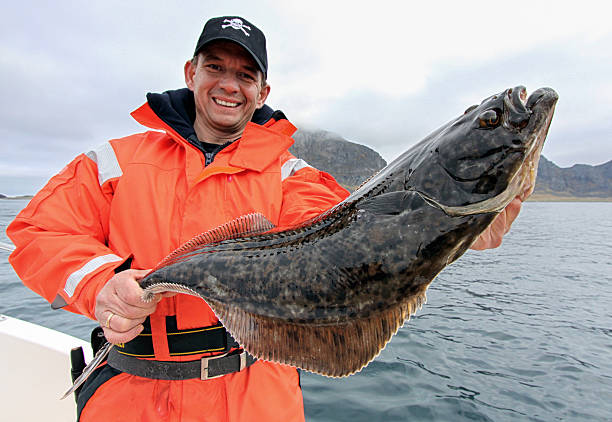The dimensions of your boat aren’t as important as your ability to use it effectively. Fishing provides a wonderful chance to engage in outdoor activities, breathe fresh air and appreciate the splendor of nature. Moreover, you may discover an exciting passion for trying to land that elusive big fish as you go along this exhilarating journey! Check out these ten strategies for effortlessly hauling in larger fish by leveraging your natural surroundings as bait.
You may also read: Guide to the Best Baitcaster Reels in 2021

Keep an Eye on Water Levels
You can’t catch any fish if they’re swimming out of reach or are already dead from lack of oxygen due to low water levels. If there is a drought, keep tabs on where lakes are before fishing because many will be low or dry by now.
Cast off Shallow Waters
Shallow waters are a hot spot for catching fish, but there are some that you’re better off leaving in the water. Fish love to swim in shallow waters when they’re spawning. If it’s close to spawning season and the water level is low, make sure you avoid fishing over these areas because most will stop here to breed before going back out deeper in the water.
Find Fish with Baitfish
If you’re fishing in shallow waters, it’s a good idea to look for baitfish or creatures that go bump in the night before heading out because they’ll attract bigger prey around them. For example, if there is a pack of shad schooling together, be sure to cast your line near these fish because they’ll attract larger predators like bass, walleye, and catfish.
Another example would be if you’re in a place known for its frog population and the water levels are low, then it might be worth your time to take your chances at night with some frog legs.

Cast Up-Current
If you’re fishing in an area with a current, it’s best to cast up-current because the fish will be naturally pushed down towards you. Just make sure your lure is heavy enough and doesn’t get swept away too far.
Use the Right Pole for the Job
There are different poles for different uses when it comes to fishing. If you want to cast a large area, use poles that are longer and heavier. For smaller sizes, try lighter rods with shorter handles for better control.
Study Your Prey
If there is something in particular that you’re trying to catch then be sure that the bait won’t scare others away like freshly caught fish. If you’re trying to catch bluegill, but they don’t go for live bait, try using fresh worm pieces, or even a cricket will work.

Use Lighter Lures at Night
If you want to head out late as the sun is going down and try your hand at catching something bigger than usual during those hours, use a lighter lure with a smaller hook to avoid deep hooking your catch.
Use the Temperature of the Water
The temperature of the water can be critical when it comes to catching certain types of fish. For example, if you’re trying to catch catfish from a creek or river during the summer months, make sure you use lighter lures because the warmer water will cause them to hunt for colder, deeper waters.
Don’t Be Afraid of Smaller Fish
Don’t avoid catching smaller fish if bigger ones are around because you might reel in something big once they’ve taken your bait! Often, smaller fish like bluegill will lead out bigger fish like bass because they’re trying to protect them from predators.
Buy Your Boat
The best way to catch bigger fish is by simply buying your boat. If you already have one, make sure it’s properly maintained and in good condition for any season! There are many different types of boats out there, so make sure you ask questions and make the right choice for your kind of fishing.
Conclusion
Fishing is a great way to get some fresh air, exercise, and exposure to nature. Along the way, you might even find yourself hooked on the thrill of trying to reel in that big one! Whether it’s shallow waters or deep water fishing, there are many ways to catch more fish by understanding where they’re at and what they like best. The temperature can also play an essential role because catfish typically hunt during warmer months, while bluegills will lead them to areas where predators lurk.





